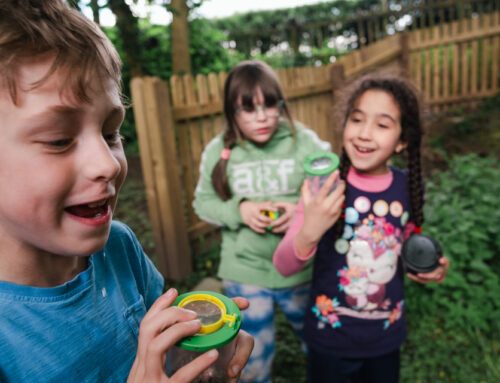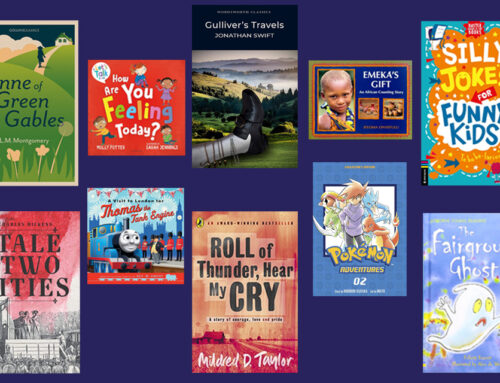Lily-Mae's Story
Lily-Mae* is a bright, curious, happy, confident child who is struggling at school. Discover more about her frustrations with handwriting and asynchronous development.
Lily-Mae is 4½ years old. Her reading age is 9, her favourite shape is a dodecagon and she thinks that the periodic table is really cool. At home she is a happy, confident child with a strong personality. She is a quick learner and creative, has a very good memory and is curious and inquisitive about the world. She taught herself to read at the age of 3 and particularly loves anything with an engineering/science aspect to it. Her mother says that “She loves to work by herself, keeping busy and finding solutions to problems.”
Lily-Mae is in the reception class of a small state primary school. She says she loves school but tells her mother that some lessons are boring – particularly “phonics on the mat”. She is struggling to make friends within her class and is happiest around children a couple of years older than her.
Her class teacher has noticed that, even though Lily-Mae gives the impression that she isn’t listening in class, she can later recall any of the taught knowledge when asked.
Although Lily-Mae has advanced reading and comprehension skills, she is struggling with her fine motor skills and is having difficulty learning to write. She can recognise the letters but trying to copy them leaves her frustrated and angry; she is starting to misbehave in class and lose interest in her work.
Lily-Mae’s mother and her class teacher are both concerned that she is switching off from learning at such an early age, but they have put it down to different reasons. Lily-Mae’s mother feels that boredom is a big factor. She feels that Lily-Mae would be much more motivated if she had more interesting work.
School, however, is adamant that she needs to be able to demonstrate what she knows through her writing, therefore, they are focusing solely on developing her writing skills. They are also continuing with phonics and won’t give her more challenging work, although they have recognised her advanced reading skills and are letting Lily-Mae choose her own reading books in Golden Time.
Lily-Mae’s developing social isolation and poor behaviour in the classroom prompted her mother to contact Potential Plus UK. Following an advice call with an education advisor, Lily-Mae’s mother booked an educational assessment. She felt that the in-depth information it would offer about Lily-Mae’s profile and abilities would help support Lily-Mae better at both home and at school.
Potential Plus UK's Advice
Lily-Mae’s educational assessment placed her cognitive functioning on the 98th percentile (i.e. that her thinking skills lie within the top 2% of children for her age).
Her assessment report noted that Lily-Mae is displaying signs of asynchronous development. In asynchronous development a child will have some skills that are very advanced for their age (in Lily-Mae’s case, her thinking, memory, reading and comprehension skills), whilst other skills lag significantly behind at age-related expectations or even lower (in Lily-Mae’s case, her fine motor skills and social abilities).
We recommended that Lily-Mae should be given regular opportunities for stretch and challenge in the classroom and beyond, with suggestions about how she could demonstrate her learning, other than with writing, whilst still supporting the development of her fine-motor skills.
Various recommendations for activities were given that could help to strengthen Lily-Mae’s hand and finger muscles, as well as to help her to practise her fine motor skills. These included:
- playing with marbles
- using playdough and similar modelling materials
- building with blocks such as Lego (one of Lily-Mae’s favourite activities).
Other recommendations included the use of pencil grips and encouraging Lily-Mae to demonstrate her ideas and stories in different ways, perhaps through visual means like mind maps and video cameras, or oral means with presentations and voice recorders, so that her true potential could be observed by others.
Lily-Mae also needed opportunities for stretch and challenge in her areas of strength. Her report noted that she has the ability to progress quickly and needs access to challenging problems to test her thinking skills and develop her resilience. Children with high thinking abilities often develop problems with tackling hard work as teenagers or adults if they have “coasted” and found things easy at primary school. It was recommended that her school use Bloom’s Taxonomy to adapt tasks within the classroom to support her.
Socially, Lily-Mae struggles to fit in with her peers. She loves to talk about science and engineering, but her classmates lack her interest or depth of understanding. She doesn’t find fitting in with their games and conversations easy. The report recommendations included advice to her school in how to help Lily-Mae mix better with all ages, and to offer opportunities for stretch for Lily-Mae which would also allow her to meet and make friends with “interest peers” – such as through lunch-time clubs across the year groups like a book club, chess club or Young Engineers.
We’re happy to say that Lily-Mae’s mother recently let us know that Lily-Mae is a lot less frustrated and badly behaved at school, and that school not only took on board many of the recommendations but are also using them with other children in Lily-Mae’s class.
Find Out More
Potential Plus UK have a number of advice sheets available to parents and schools which can be used to help support children with profiles like that of Lily-Mae. They include:
For Parents
- PA316 Developing Fine Motor Skills in High Learning Potential Children
- PA314, Handwriting Difficulties and Alternative Ways to Demonstrate Learning
- PA601, Social and Emotional Development of High Learning Potential Children
For Schools
* Lily-Mae’s name has been changed. Read about more genuine young people with high learning potential helped by Potential Plus UK in: Family Stories








